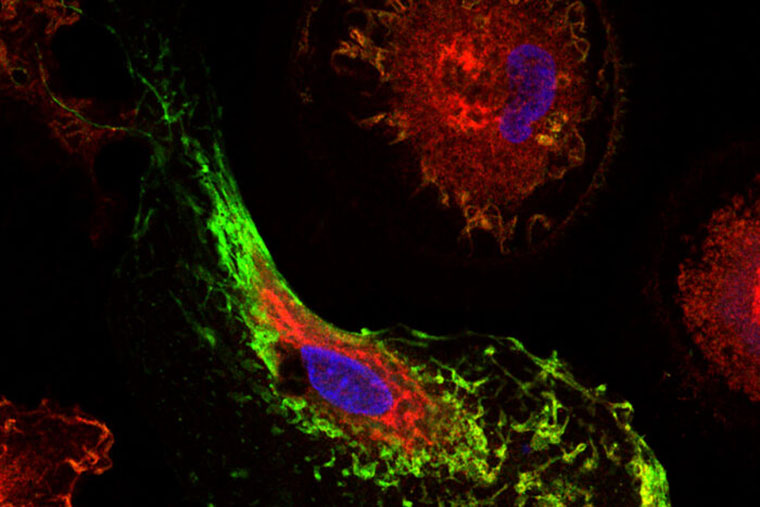An international team of researchers led by scientists at Washington University School of Medicine in St. Louis has identified a pair of genes that influence risk for both late-onset and early-onset Alzheimer’s disease.
Most genes implicated thus far in Alzheimer’s affect neurons that transmit messages, allowing different regions of the brain to communicate with one another. But the newly identified genes affect an entirely different population of cells: the brain’s immune cells. The findings, published online Aug. 14 in the journal Science Translational Medicine, could provide scientists with new targets and a strategy for delaying the onset of Alzheimer’s symptoms.
